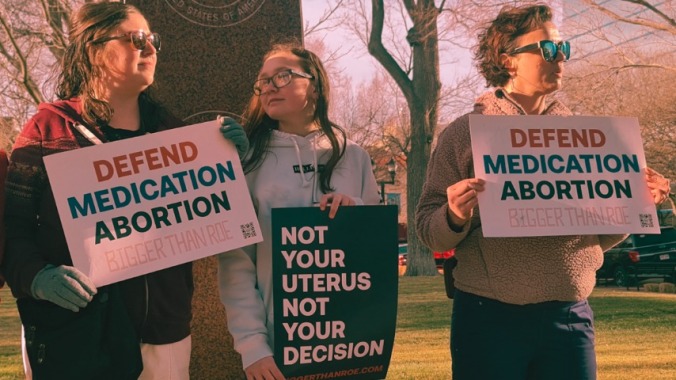Texas GOP Wants to Ban Websites With Abortion Info, Reclassify Abortion Pills
Two pre-filed bills could ban sites like Plan C and Hey Jane, and reclassify abortion pills as "Schedule IV" drugs under the state's Controlled Substances Act.
Photo: Getty Images AbortionPolitics
Texas’ legislative session doesn’t start until January. But Republicans are frothing at the mouth to make abortion somehow even less accessible. Last week, lawmakers filed two key anti-abortion bills: one inspired by Louisiana’s law that reclassifies the pills as dangerous “controlled substances” without any basis, except to further restrict them, and another that would ban internet providers from hosting the websites of abortion funds or sites that offer any information on abortion, including abortion pills. Mind you, this is a state that already imposes a total ban that threatens abortion providers with life in prison.
In October, Louisiana became the first state to criminalize mifepristone and misoprostol, the two most common medication abortion pills, through a new law that reclassifies them as a Schedule IV drug. (This ignores how a substance must be addictive to be classified as such.) Anyone who possesses the medications without a prescription could face prison time. The law offers an exception for pregnant people who are about to use the pills to end a pregnancy—but as one legal expert warned Jezebel, the process to determine this would be “incredibly invasive and intrusive,” if not impossible.
-

-

-

-

-

-

-

-

-

-

-

-

-

-

-

-

-

-

-

-

-

-

-

-

-

-

-

-

-

-

-

-

-

-

-

-

-

-

-

-








































